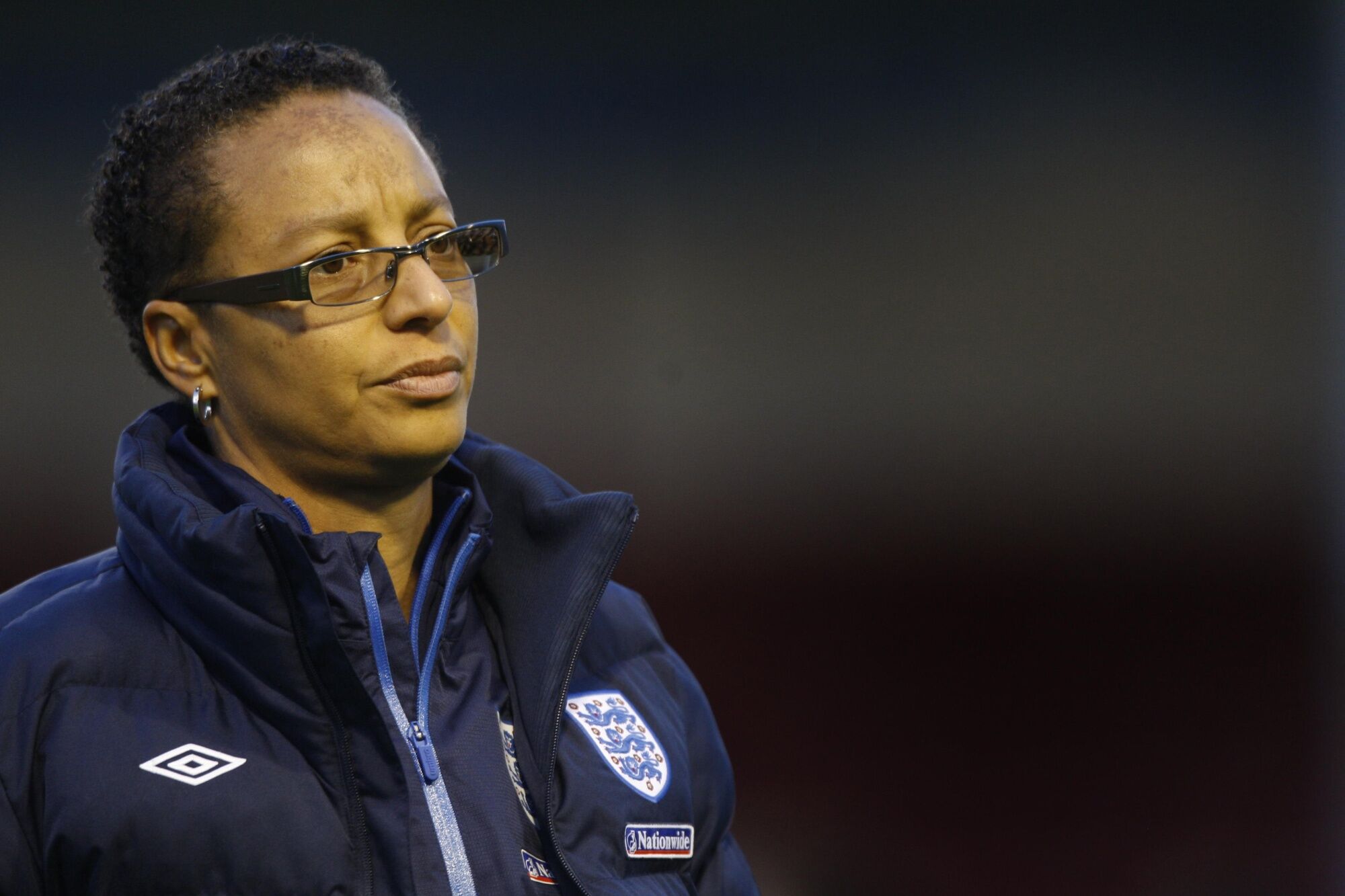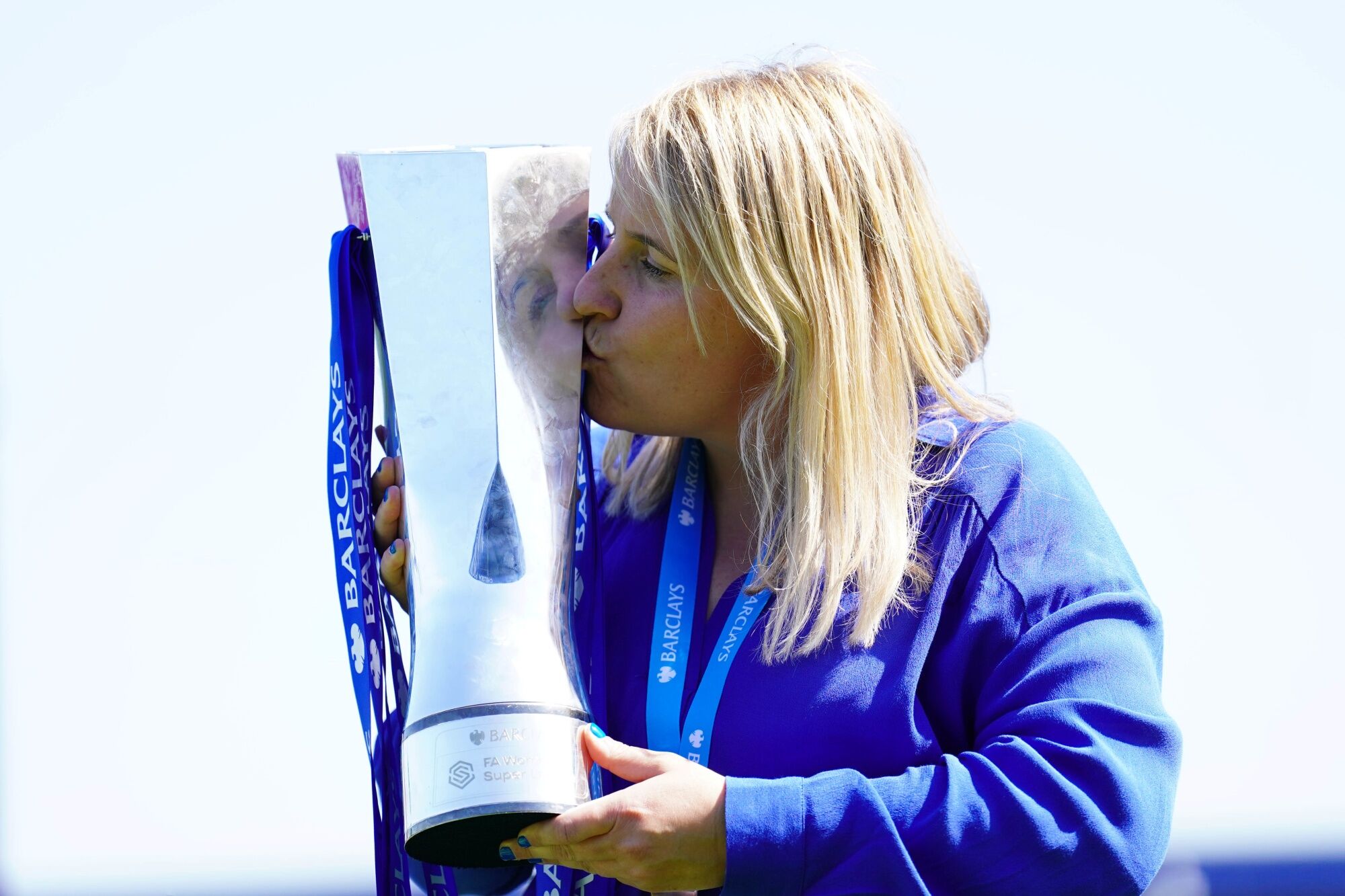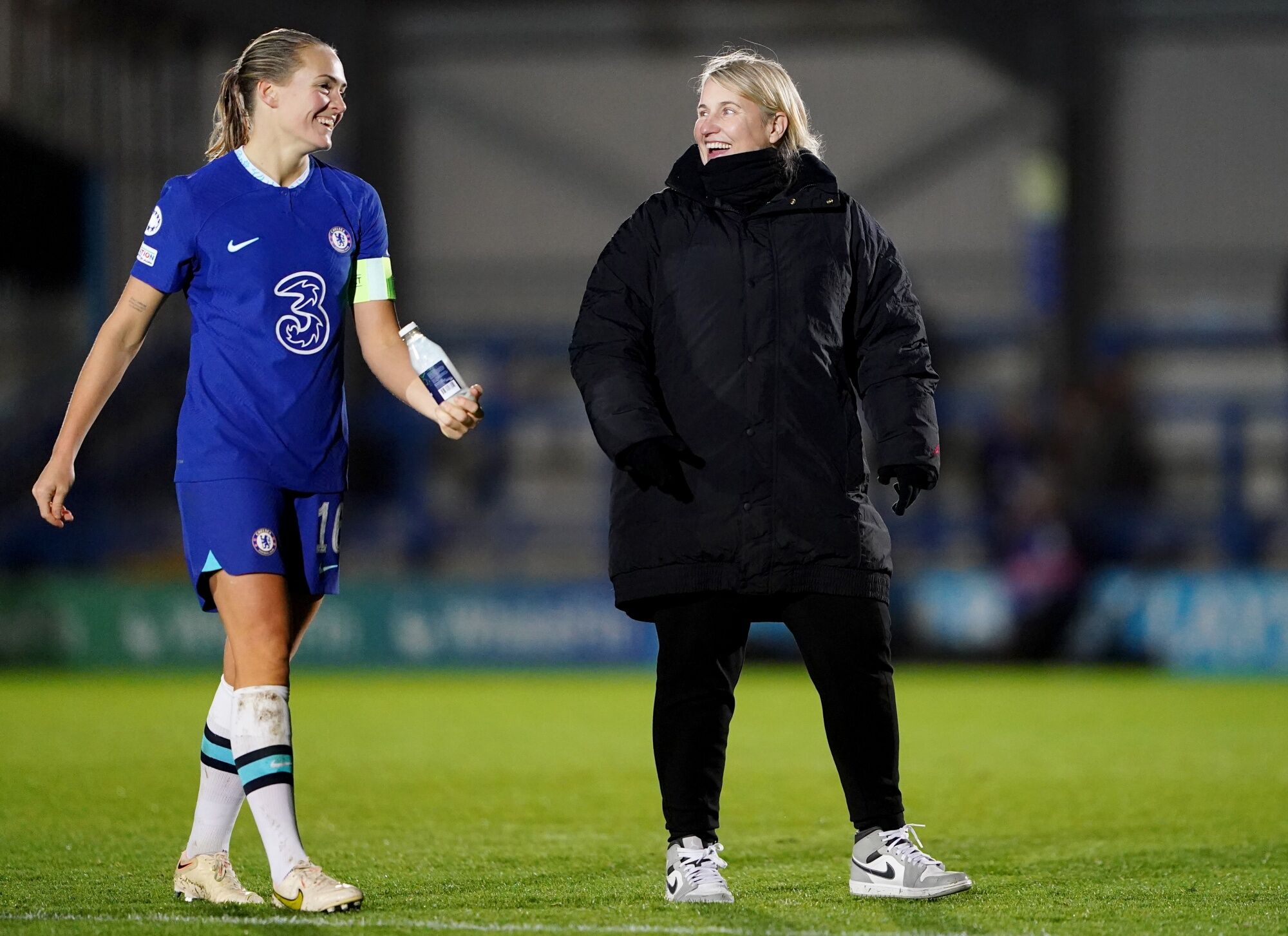As Sarina Wiegman continues to experience unrivalled success with England Women, the head coach unfortunately appears to be the exception as opposed to the rule.
Because, while last summer’s Euro success was a watershed moment raising awareness of the numerous changes needed to enhance the women’s game, female coaches are still alarmingly underrepresented within it.
The Women’s Super League (WSL), the highest level of women’s football in England, currently has only four women managers out of a possible 12 with the recent dismissals of Hope Powell (Brighton) and Lydia Bedford (Leicester) seeing them replaced by men.
When considering this number was at 56% in 2021 according to a RunRepeat report, up from 25% in 2015, it feels like one step forward and two back for the women’s game.
Former England boss Powell has repeatedly warned of the threat of female coaches being squeezed out as the increasingly raised profile of the women’s game means more male coaches see it as a greater opportunity to earn a living.

Her fears have fallen on deaf ears though, as competition to become an established professional coach appears to be harder than ever as the FA’s pathway fails to help the women’s cause.
To become a professional coach there are not only five levels of FA coaching qualifications costing up to £15,000 to complete but it is also incredibly difficult to even be able to enrol on them.
There are just under 50 different coaching qualifications available as part of the FA coaching pathway and out of those, there is one course that is available without a fee (EE Playmaker by England Football) with only a handful specifically catered for females.
Meanwhile, with a report by UK Coaching revealing male coaches were significantly more likely to be from higher social grades compared to female coaches (70% to 58% respectively), it is clear the cost is a fundamental factor affecting womens’ choices to go into the profession.
In 2020, the FA unveiled a four year strategy, ‘Inspiring Positive Change’, to create a sustainable future for women and girls in football which included coaching aims that has since seen the number of female coaches working in affiliated female teams increase by 75%.

However, there is still more to be done for this percentage to translate into the professional game and, while the government’s £600m package to create equal school sport opportunities for girls is a step in the right direction, coaching opportunities should not be overlooked within the scheme.
For every Leah Williamson there is an Emma Hayes – someone who’s playing career was cut short at 17 due to a career-ending ankle injury yet has gone on to become the most decorated women’s football coach in the English game with Chelsea.
Therefore, it is vital that girls at school level are provided with coaching choices alongside playing ones and a sustainable, cost-effective pathway is created for them to pursue these goals.
READ MORE: Women’s Super League 2022/23 So Far: How Arsenal, Chelsea, Tottenham and West Ham are getting on
When London Football Scene put the issue to Wiegman during the Lionesses recent Arnold Clark Cup success, she appeared positive for the future, saying: “Hopefully the percentage of women coaches in the game is going to get higher and higher.
“And I don’t see why women should not be coaching men either. I think it’s only a matter of time until we see that happening.”
While a woman coaching in men’s football would be a pioneering step that could open the door for future generations, it still feels a long way off while the opportunity would have to not only be the right one for the respective coach and club but for the good of the women’s game.

When Hayes was linked with the vacant AFC Wimbledon job back in 2021, the 46-year-old labelled the suggestion an EFL job would be a step-up from women’s football as an ‘insult’.
The Chelsea manager said the “world of football needs to wake up and recognise that, while the game is played by a different gender, it is exactly the same sport, and the qualities involved with having to manage that are exactly the same as they would be in a men’s team.”
“I just don’t know why anyone would ever think that women’s football is a step down and that coaching World Cup champions, winners, players that have represented their countries in the Olympics or European championships is a step down from anything.”
England aren’t the only country with a severe lack of female coaches – there are less than 25% of female head coaches in each of the major leagues of the NWSL, Frauen-Bundesliga, Division 1 Feminine and Primera División Femenina de Espana according RunRepeat.
But with the Lionesses and WSL leading the charge for women’s football, the FA and other governing bodies need to do more to ensure the next generation of Powells, Hayes’ and Wiegmans do not fall through the gaps.